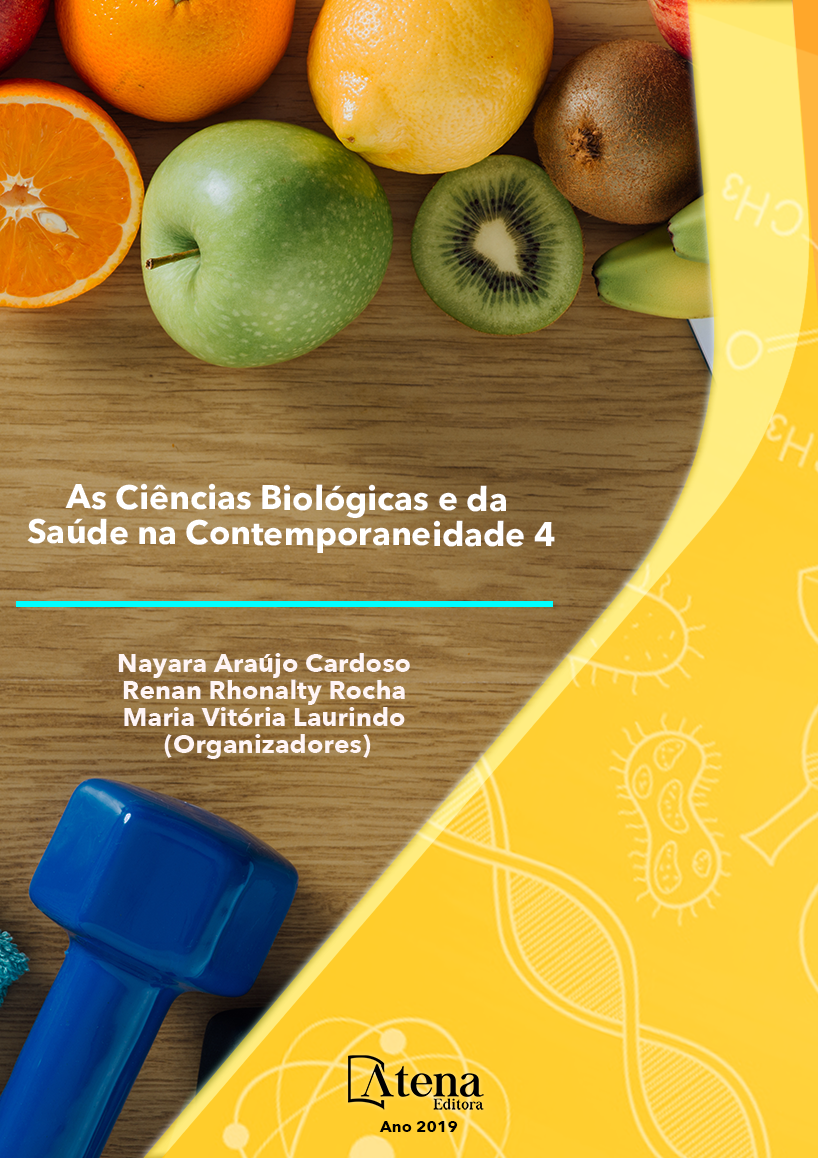
COMPORTAMENTOS DE Callithrix aurita CATIVOS SOB INFLUÊNCIA DE ENRIQUECIMENTOS AMBIENTAIS
Callithix aurita é uma espécie de
sagui habitante da Mata Atlântica do sudeste
brasileiro, sua população vem lidando com
pressões antrópicas e hibridação descontrolada.
Algumas ações tomadas em cativeiro podem
ser ferramentas ideais para conservação
das espécies. Técnicas de enriquecimentos
ambientais e etograma quando combinados
podem auxiliar, principalmente, na avaliação
do bem-estar de animais cativos. Foram
observados dois casais de saguis (F1-M1/
F2-M2), cada casal estava em um recinto.
As observações foram indiretas por meio de
vídeos e ocorreram em três fases distintas:
fase 1 e fase 3 eram sem enriquecimento e
fase 2 com enriquecimentos, cada uma durou
oito dias e com sessões de observações de
10 minutos a cada três horas no período das
08:00 às 17:00. Foram implantados três tipos:
os enriquecimentos alimentares (EA), os
estruturais (EE) e os olfativos (EO), organizados
em combinações com um representante de
cada tipo, estas implantadas alternadamente
em cada dia. Foi obtido um etograma de
33 comportamentos relacionados em seis
categorias, no total foram exibidos 7278 eventos
sendo que F1 totalizou 1923 exibições, M1 1967,
F2 1732 e M2 1673. As exibições foram mais
numerosas na categoria locomoção, cerca de
79% do tempo de cada fase. As interações com
os enriquecimentos totalizaram 180 eventos,
sendo o casal F1-M1 os responsáveis por
56% destes, os EE foram os mais acessados,
seguidos dos EA e EO. Os comportamentos
observados corroboram com resultados
obtidos em outros estudos com Callithrix sp,
confirmando que enriquecimentos ambientais
acrescem nas atividades comportamentais,
favorecendo o bem-estar animal.
COMPORTAMENTOS DE Callithrix aurita CATIVOS SOB INFLUÊNCIA DE ENRIQUECIMENTOS AMBIENTAIS
-
Palavras-chave: Etograma, cativeiro, sagui-da-serra-escuro, bem-estar.
-
Keywords: Ethogram, captivity, Buffy-tufted-ear marmoset, welfare.
-
Abstract:
Callithrix aurita is a species of
marmosets that inhabit the Atlantic Forest
of southeastern Brazil, their population has
been dealing with anthropic pressures and
uncontrolled hybridization. Some actions carried
out in captivity may be ideal tools for the species
conservation. Environmental enrichment techniques and ethogram when combined
may assist, above all, the assessment of the welfare of captive animals. Two pairs
of marmosets (F1-M1 / F2-M2) were observed, each pair being in an enclosure. The
observations were indirect through videos and occurred in three distinct phases: phase
1 and phase 3 were without enrichment and phase 2 with enrichment, each one lasted
eight days with observation sessions of 10 minutes at every three hours during the
period of 08:00 to 17:00. Three enrichment types were applied: food (EA), structural
(EE) and olfactory (EO), organized in combinations with one representative of each
type, alternately implanted on each day. An ethogram was performed with 33 behaviors
related in six categories, the total number of events were 7278, with F1 totaling 1923
exhibitions, M1 1967, F2 1732 and M2 1673. The exhibits were more numerous in
the locomotion category, about 79% of the time of each phase. The interactions with
the enrichments totaled 180 events, with 56% due to the F1-M1 couple, the EE were
the most accessed, followed by the EA and EO. The observed behaviors corroborate
with results obtained in other studies with Callithrix sp., confirming that environmental
enrichment promote the behavioral activities, contributing to animal welfare.
-
Número de páginas: 15
- Karla Andressa Ruiz Lopes
- Nádia Maria Rodrigues de Campos Velho
- Marcellus Pereira Souza


